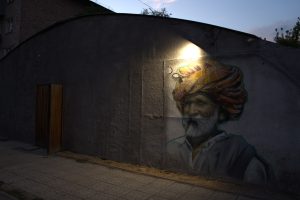Kyrgyzstan made international headlines on May 18, 2024, when an angry mob of over 700 people gathered and attacked students from India and Pakistan in a racially motivated assault. The number of medical students from South Asia in Bishkek has steadily increased over the past several years. Many students from India and Pakistan are attracted to Kyrgyzstan’s affordable university fees, low cost of living, and the ability to transfer their medical degrees back to their home countries relatively easily.
While racism has always been present, the violence in May was the first large-scale attack targeting students from India and Pakistan and was deeply shocking and traumatizing to many in the community.
While some students decided to return to their home countries following the attacks, many community members are still dedicated to building their lives in Bishkek because of the friendships they have forged and their deep appreciation for Kyrgyz culture.
Some expats who initially came to Kyrgyzstan for medical school, intending to return to their home countries, have instead stayed and put down roots. Sandeep Bijawat, the owner of Somewhere Bistro in Bishkek, moved to Kyrgyzstan more than 13 years ago for medical school. After finishing his degree and living in India for a year, Bijawat returned to Bishkek to open Somewhere Bistro, which features Indian cuisine and hosts events that celebrate Indian culture, such as the annual Holi Festival and New Year’s celebrations with Bollywood-techno house-style music. People from India and Pakistan come to big celebrations like these at Somewhere Bistro, as well as many locals and other expats.
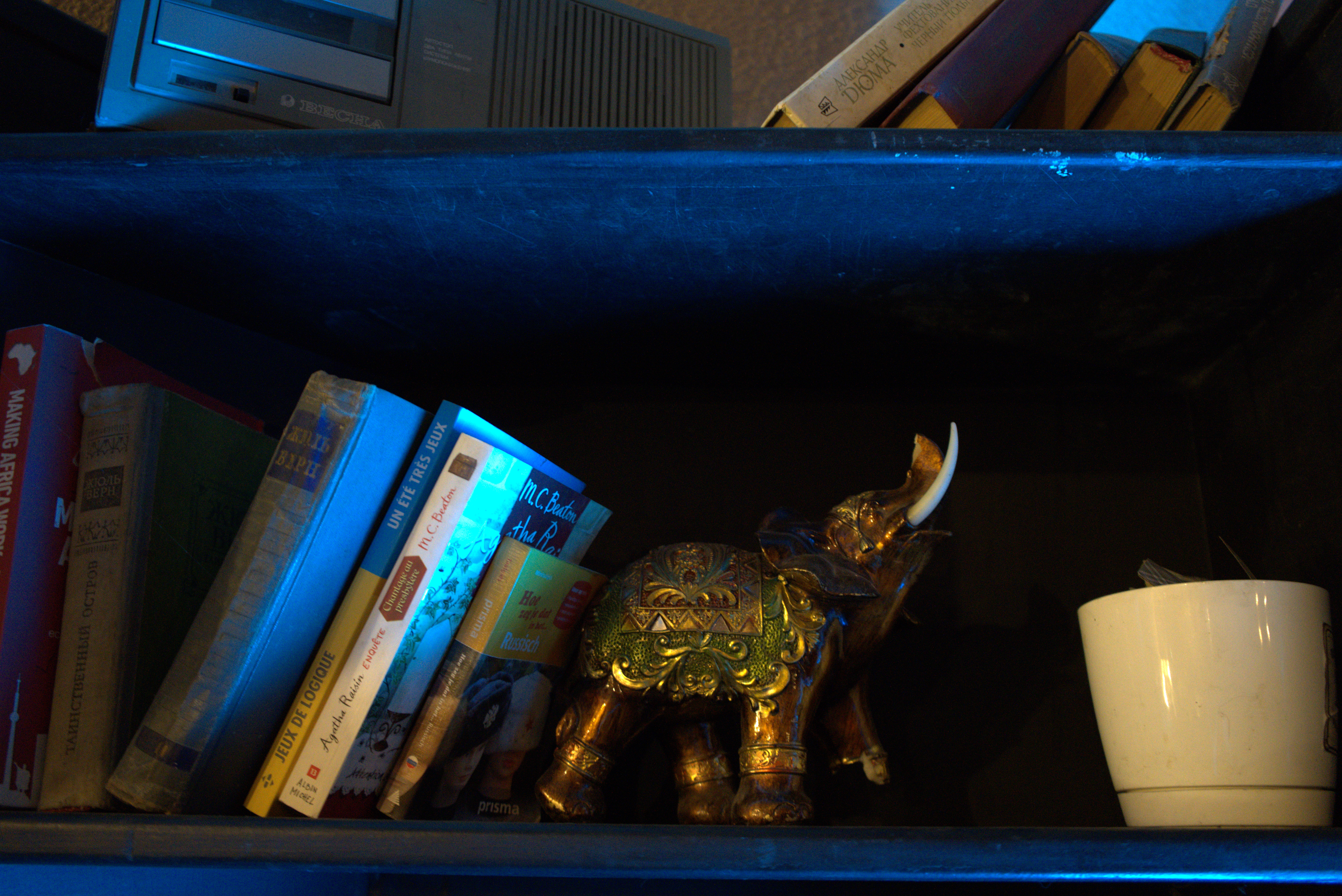
A bookshelf inside Somewhere Bistro. Photo by Haley Zehrung.
“Bishkek now and 13 years ago are very different,” Bijawat said. After living in Bishkek for eight months at just 17 years old, Bijawat returned to India due to struggles with language and cultural barriers. As a student, he felt uncomfortable going to places in Bishkek because of how people watched him. “Every seventh or eighth man would stare at me in a bad way when I’m not at all guilty for anything.”
But Bijawat moved back to Bishkek shortly after to finish his medical degree. He found welcoming places, made local friends, and improved his Russian language skills. The attacks in May were the first time he has considered leaving.
The night before the attacks at the student residences, two men in masks came to Somewhere Bistro demanding to speak with Bijawat outside in a threatening manner. One of the bartenders, a local Kyrgyz woman, spoke with them in Kyrgyz and convinced them to leave. Bijawat believes the men came because they knew the bar is owned by an Indian man, but did not find much of their target group because of the multicultural space Bijawat has built.
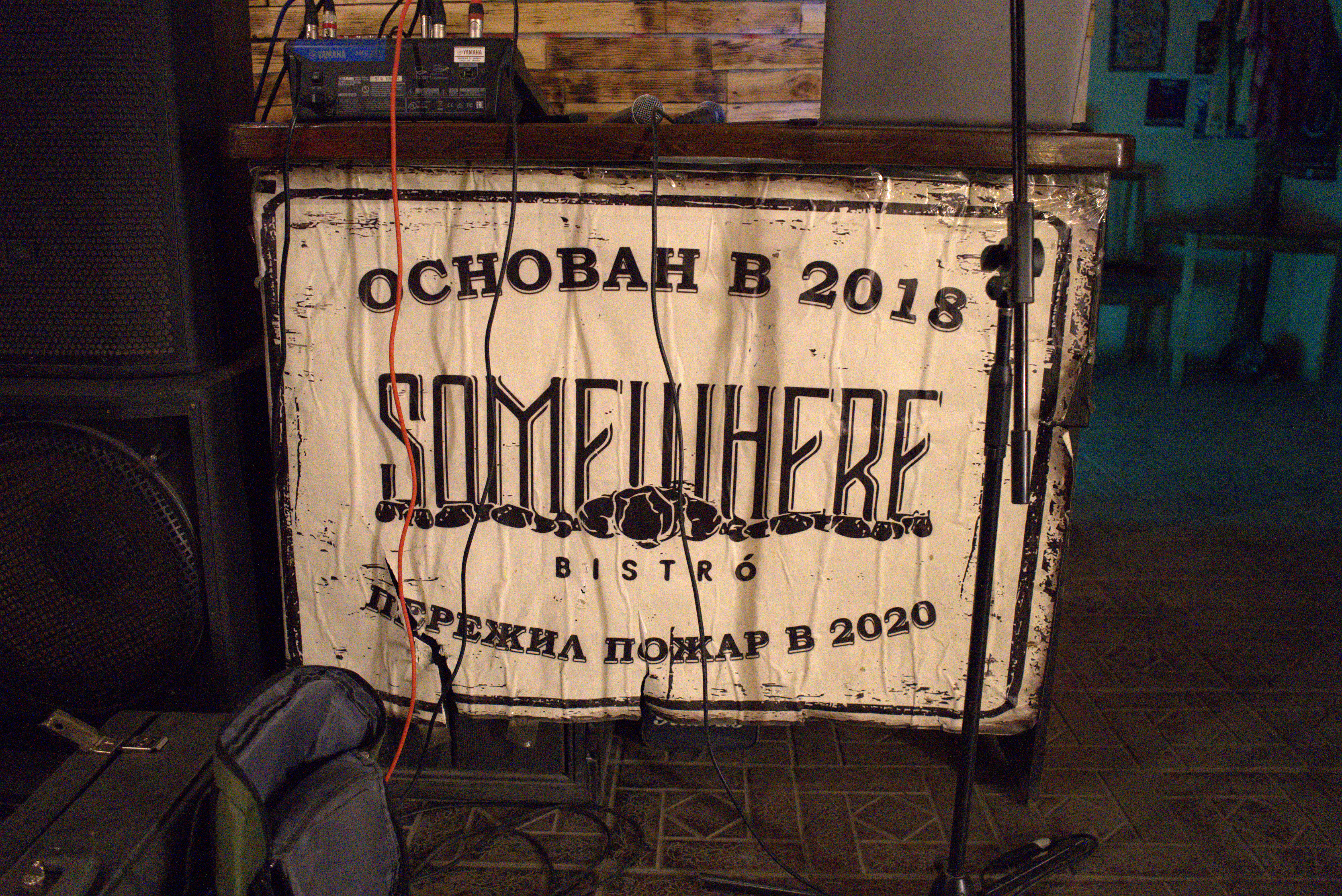
Somewhere Bistro’s sign, reading “Established in 2018, survived the fire in 2020.” Photo by Haley Zehrung.
For three days, he was upset because of the unfairness of what people from India and Pakistan lived through. But even when thinking about his long-term future, Bijawat says he continues to live in Bishkek not because of his businesses, but because of the friendships he has built with people in Kyrgyzstan.
In the immediate aftermath of the attacks, his local friends came in more frequently and accompanied him to and from the bar to make sure he was safe. Just two days after the attacks, Bijawat was comforted when walking in the street. A local man he did not know stopped him to say, “Don’t worry, everything will be fine.”
Bijawat is unsure if things have improved since the attacks, but he feels comfortable in Bishkek and thinks that most people understand the economic value of having a bustling international student population. In the past ten years, his confrontations with racism have become less frequent. If someone exhibits racist tendencies toward him, Bijawat attributes it to a lack of exposure to the Indian community.
Somewhere Bistro hosts regular musical performances and other types of events featuring artists from Kyrgyzstan and abroad. Bijawat himself has a band, Frunze Streets, that plays indie rock and reggae music influenced by Bijawat’s favorite Sufi music. Their music has songs that include mantras in Sanskrit set to rock music, as well as lyrics in Russian and English. The band was formed in 2014 and is now made up of musicians from Kyrgyzstan along with Bijawat.
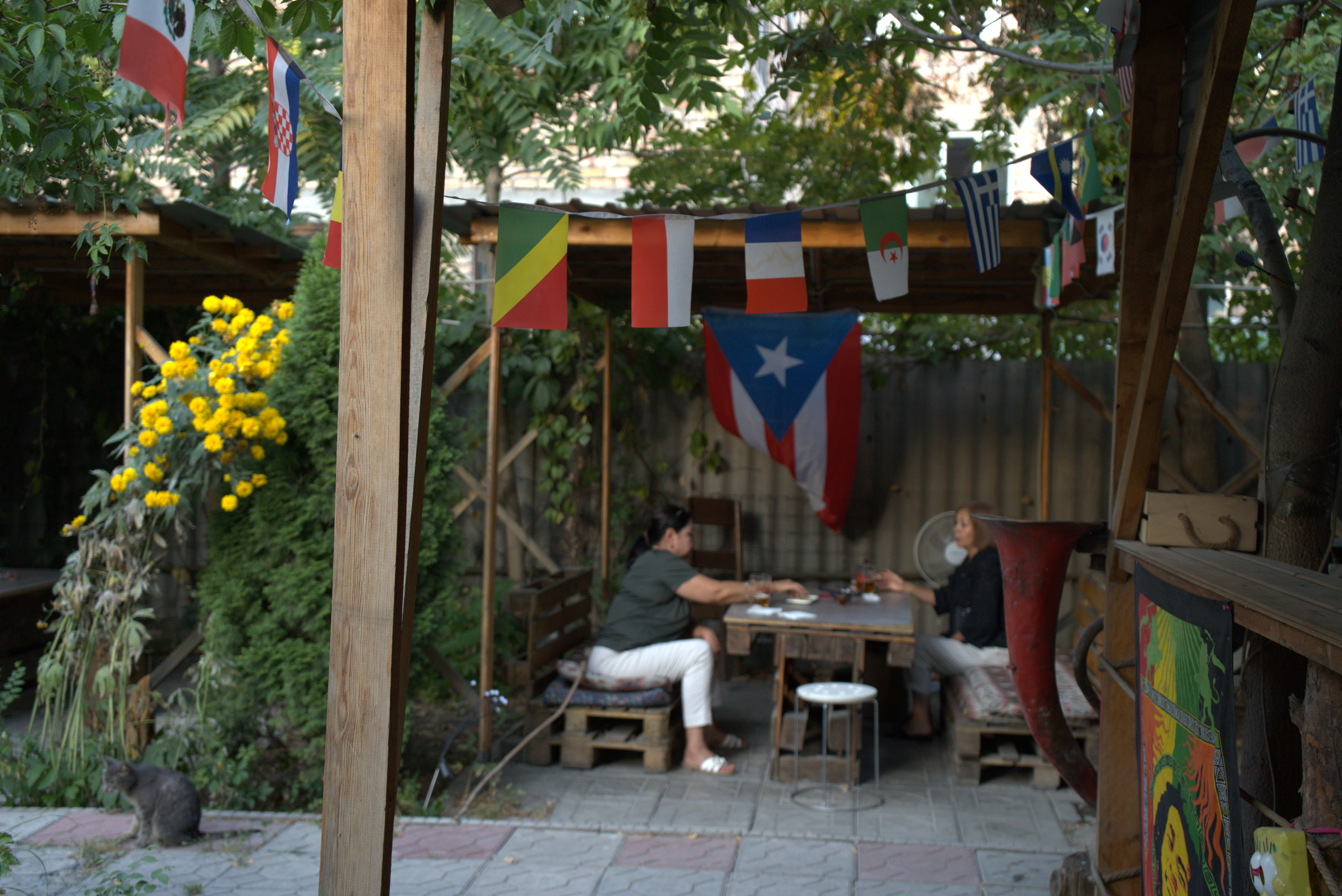
The outdoor courtyard of Somewhere Bistro, which is adorned by the flags of the world. Photo by Haley Zehrung.
With Bijawat, Nitin Rao runs a company, Bollywood CIS, that manages line production of Bollywood movies in Central Asia. Rao moved to Kyrgyzstan more than nine years ago for medical school. After finishing his studies, Rao decided to stay after finding his passion for business and falling in love with Kyrgyzstan and the people and culture around him.
For Rao, the decision to settle in Bishkek was a gradual process. As he learned Russian, he was able to learn more about Kyrgyz culture and travel around Kyrgyzstan, motivating him to want to continue his language studies. “If you are familiar with the culture and language, it is easy to be friends with locals and love the people around you,” he said.
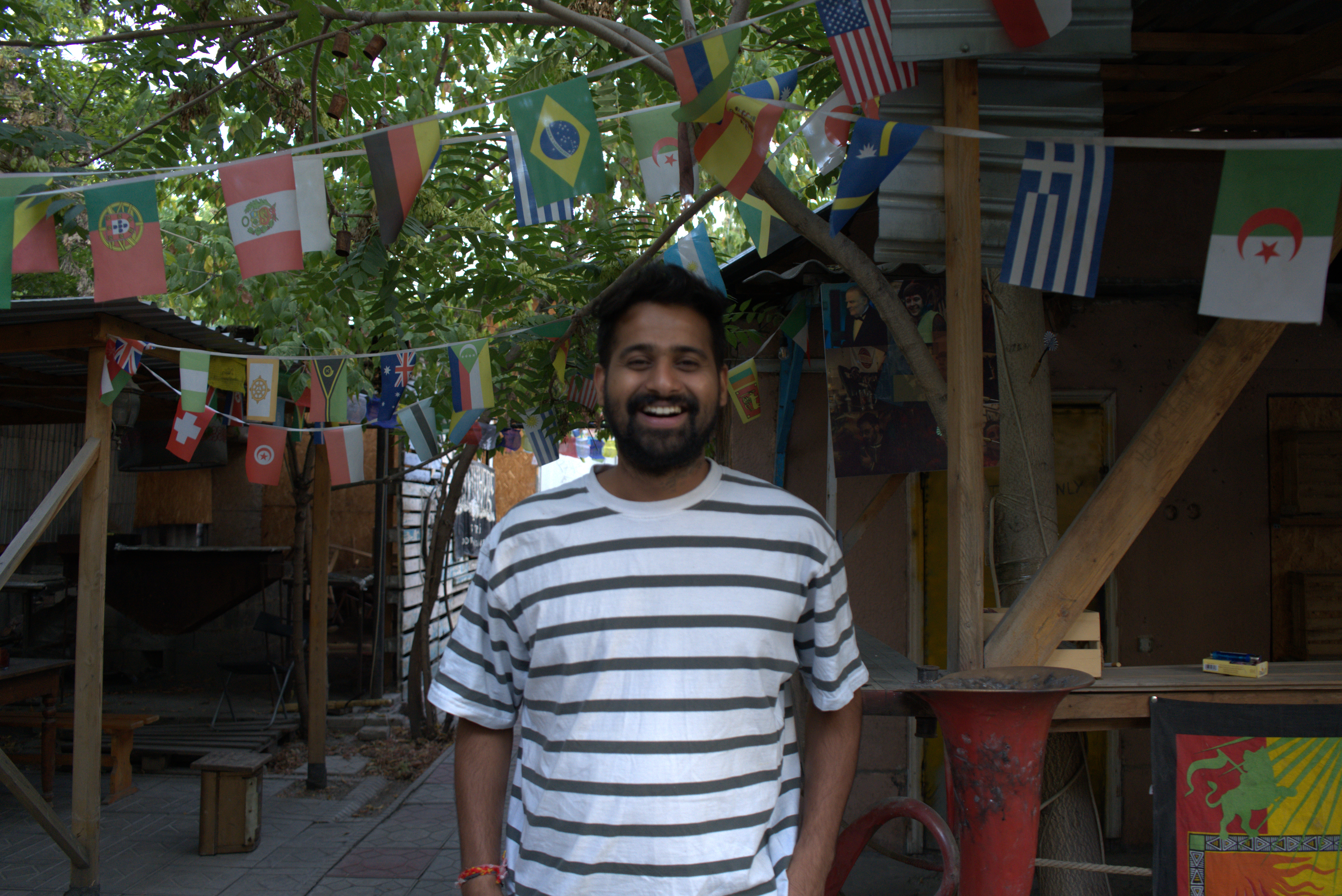
Somewhere Bistro owner Sandeep Bijawat. Photo by Haley Zehrung.
Rao learned to adapt to the culture — he presented himself more calmly and spoke more quietly.
“The first time I traveled in public transport here, I was with a group of friends and we were talking so loudly. They [Kyrgyz passengers] started to say something and I didn’t know Russian, so I thought they wanted to harass us, but I learned they don’t like it when we are loud in public.” Learning more about the cultural nuances of Kyrgyzstan helped Rao feel more at home in Kyrgyzstan, something that continues to be a challenge for any expat.
Many of the Indian community expats whom Bijawat and Rao studied with have left Kyrgyzstan. Those who come for non-academic reasons, like to start or grow their businesses, are not a large or deeply connected community in Kyrgyzstan, but they are familiar with each other through encounters at restaurants and festivals like the ones hosted at Somewhere Bistro.
Bijawat and Rao have both built vibrant communities in Bishkek and characterize the attacks against their community as an anomaly. They noted that it is hard for local people to understand Indian artists and culture and that lack of exposure is the main issue in Kyrgyzstan for South Asians. Rao recently became a DJ and primarily plays Indian music, but says it is sometimes difficult to attract local audiences because not everyone is familiar with music from India.
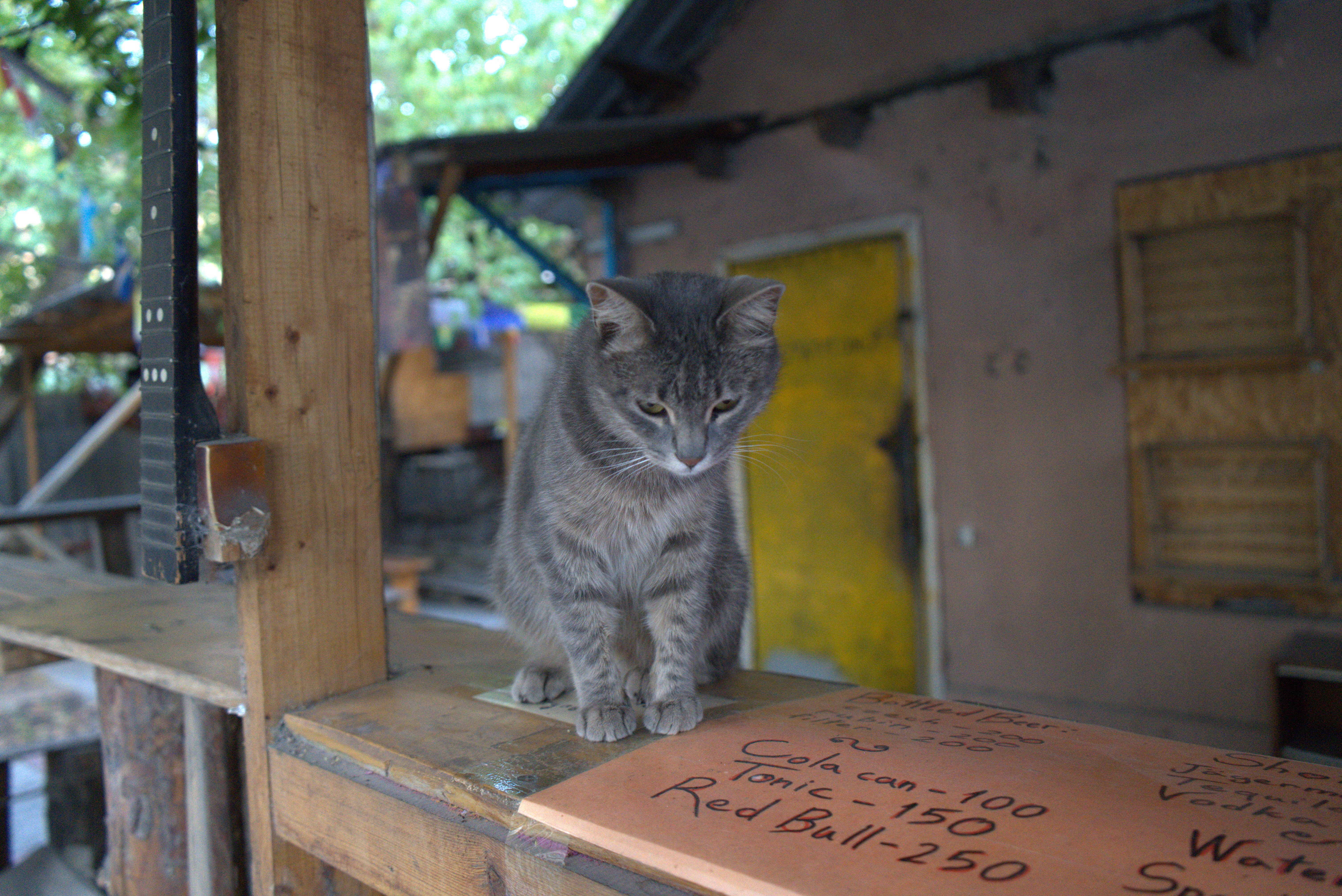
One of the many cats that is fostered by Somewhere Bistro. Photo by Haley Zehrung.
Gazi Parwez, who finished medical university in Kyrgyzstan and is an aspiring entrepreneur, recommends studying in Kyrgyzstan to other Indians. Parwez has been in Kyrgyzstan for seven years and has stayed through personal economic hardship. He largely attributes his decision to stay to the community he built in Bishkek. But Parwez, who has ethnic Turkish roots, is considering moving back to India because of the attack in May. As a Turkish-Indian man, he says his desire to move back is not because he feels endangered on account of his appearance or background, but rather because he is saddened by the treatment of his community.
Rao and Parwez said that the medical students they know plan on returning, although both note that the May events were significantly more frightening for the students and their families since they are less familiar with the country. Bijawat is unsure if the students he knows will return or not.
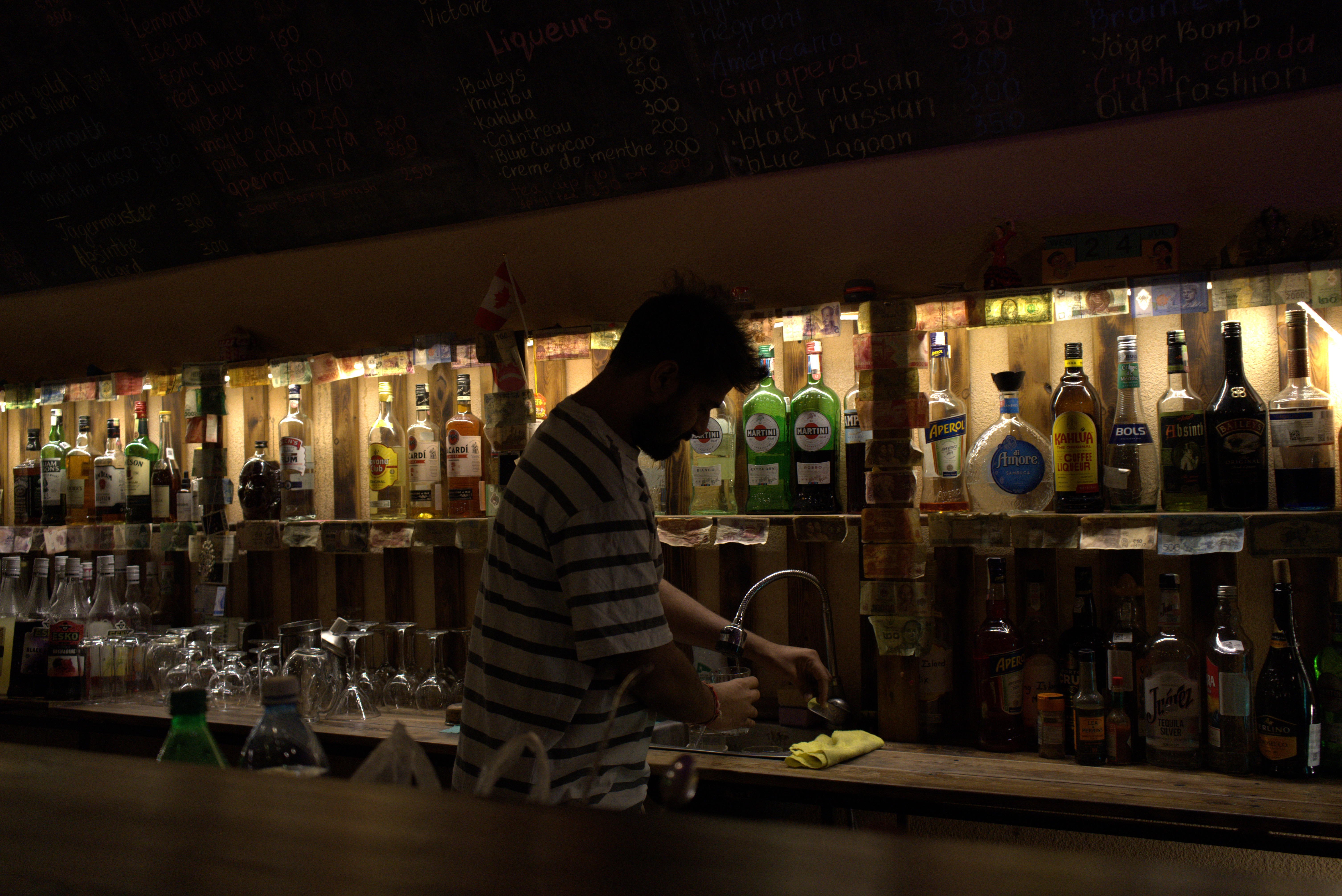
Somewhere Bistro owner Sandeep Bijawat behind the bar. Photo by Haley Zehrung.
A professor from Kyrgyzstan at a medical university in Bishkek who has been working with students from India and Pakistan for around five years is still waiting to see how many of her students will return. (The professor requested that her name not be printed.) For a week after the attacks, she and her colleagues took turns watching the students’ dormitories 24/7 and bought them groceries with their own money. They switched to online instruction for the remainder of the semester. Although there were no additional attacks during that time, the professor and her colleagues continued to provide this support because they wanted the students to feel safe and calm.
Many locals have a negative opinion of foreign workers who move to Kyrgyzstan to provide manual labor, and some narratives push the perspective that workers from India and Pakistan take jobs away from locals, which contributes to a broader anti-migrant sentiment in Kyrgyzstan. Despite some of the negative perceptions of the Indian and Pakistani communities in Kyrgyzstan, there is hope that the situation will improve in the future. Many students are set to return to university in the fall semester to continue their studies, and the government of Kyrgyzstan has continued to work closely with representatives of Pakistan and India to ensure the safety of students in Bishkek.
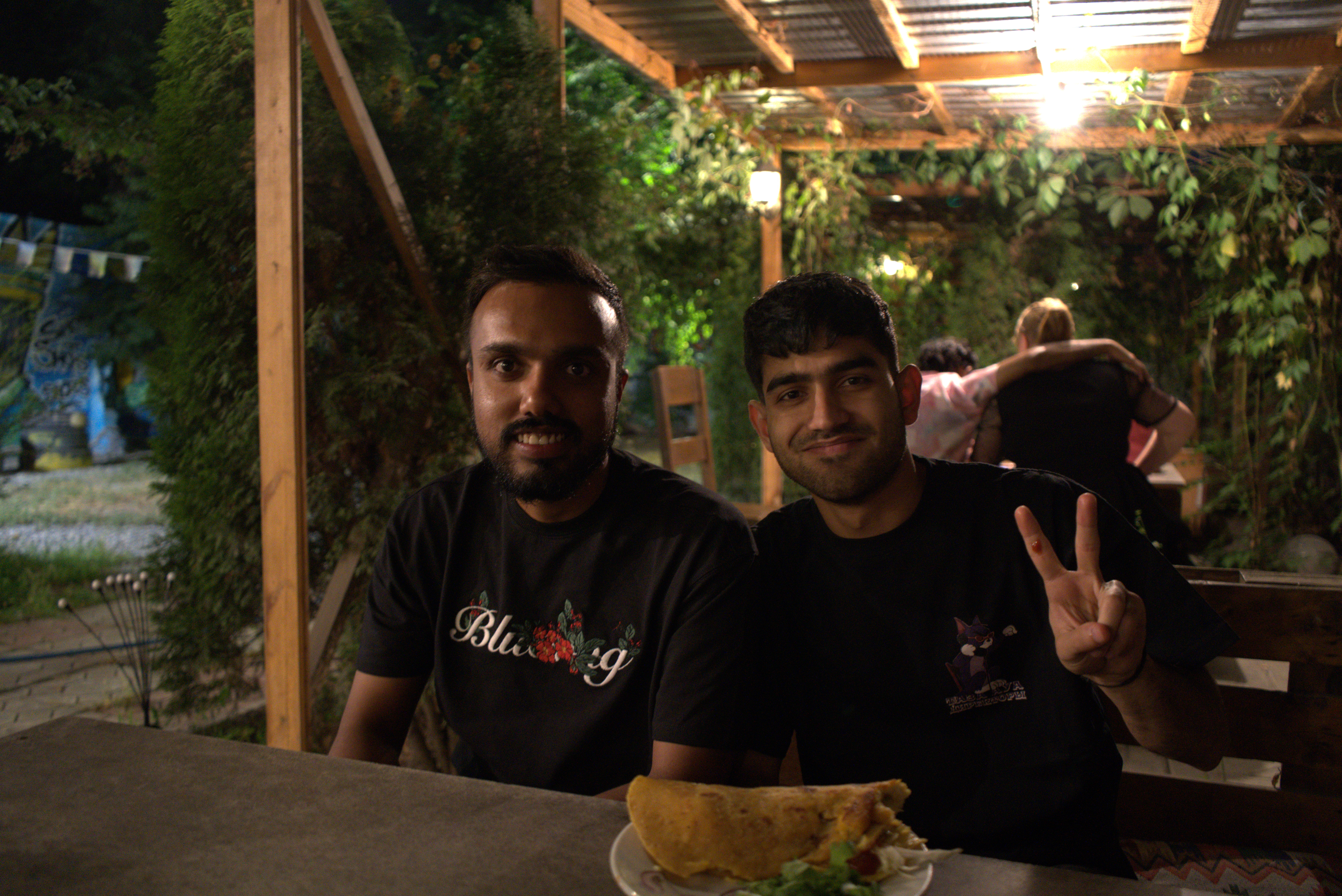
Nitin Rao and his colleague Kartik, who moved to Bishkek from India for work. Photo by Haley Zehrung.
When Bijawat completed university, he returned to India and continued to think about his experience in Bishkek. He felt it was necessary to return to Bishkek and create a place like Somewhere Bistro where a person, no matter their attire, race, appearance, or culture, can feel comfortable and enjoy listening to music. He also wanted to change the mindset people have about Indians, specifically by challenging old Bollywood stereotypes that Indians are dirty and poor.
“They have no idea about what is the new India, how Indians behave, or how they talk and live, and through our culture, we can change that,” he said.
While the attacks in May were deeply jarring to many residents of Bishkek, Bijawat, Rao, and Parwez are part of a thriving Indian expat community in the city. They have built businesses, relationships, and families in the country they now call home, and they are hopeful about the trajectory of Kyrgyz-Indian relations and the further growth of their community.













